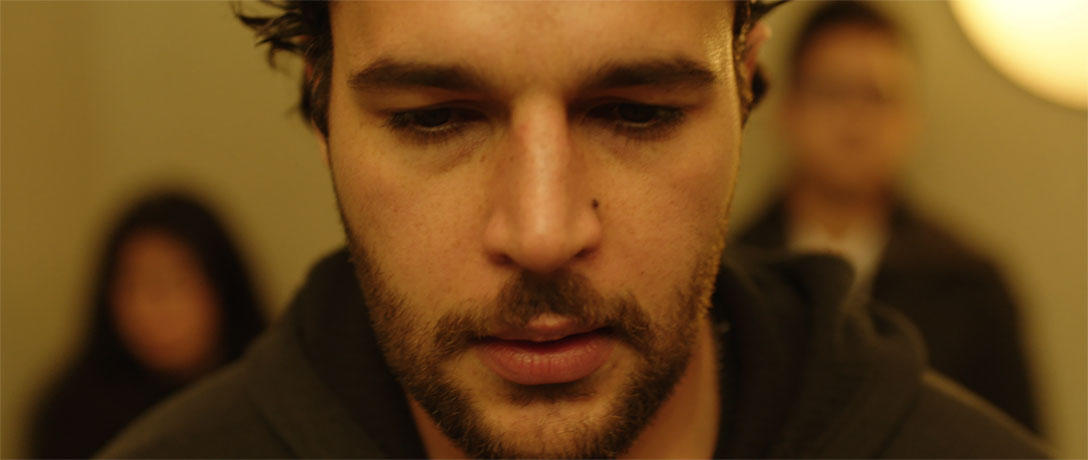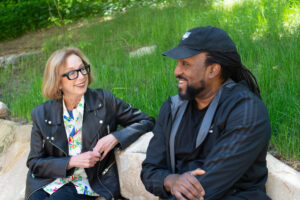Eric Hynes
For all the autobiographical narratives, in-depth profiles, and passion projects at the 2015 Sundance Film Festival, James White may have been the most intimate film at Park City. From first scene to last, wherever James White (Christopher Abbott) goes, the camera follows, and closely.
Whether he’s wandering through a crowded New York club, getting into a bar fight, bombing at a job interview, navigating his deceased father’s Shiva, or tending to his ailing mother (Cynthia Nixon), we’re right there to read his face, register his desperation or confusion, and ride his emotional rollercoaster. Already standing naked before us as a twenty-something without evident ambition or passion, the prospect of his being left without either parent makes for an especially raw characterization. And it’s one that comes from a deeply personal place.
“A couple of years ago my mother died. And there’s no book on how to deal with it,” said director Josh Mond during a post-screening Q&A last January. He said that it was thanks to his producing partners, Sean Durkin and Antonio Campos, that he was able to emerge from his tragedy with a stronger notion of how to tell this story, and to focus on the relationship between a mother and son in particular.
“I look up to writers and musicians who explore something they don’t understand with their material. It’s not me, obviously, it’s a movie. But there’s a lot of me in there,” he said. “John Guare says it in Six Degrees of Separation, ‘the imagination makes self-reflection bearable.’”
Mond also talked about how his character’s relationship with New York—as a place to get drunk on and lost in, but also a place from which to escape—rhymes with his own. “I moved to NYC when I was about 12. It was a crazy experience because you’re seeing thousands of people every day. You’ve got your armor on, you’re always reacting. And it’s a very different way of living,” he said. “I’m very grateful for New York, I love New York, it’s my home, but I can’t really breathe there. And that’s what I wanted it to feel like.”
In terms of his partnership with Durkin and Campos, each of whom have directed films that played at Sundance (Martha Marcy May Marlene and Simon Killer, respectively) he spoke of their simultaneous commitment to supporting one another and to producing only things that they’re all comfortable sharing with the world.
“We’ve built this idea of how we make films. We protect each other from bullshit. Even from our own bullshit,” Mond said. “I know that at the end of the day my partners would never let a movie that we weren’t proud of out. So I constantly had to remember that. That I wasn’t going to be abandoned, that there weren’t agendas, that there wasn’t vanity from producers, there wasn’t like—cast this person and we get to go to Sundance. I mean, make a movie about a guy whose mom is dying of cancer? It’s not exactly a moneymaker.”
But after producing Durkin’s and Campos’ films, he said that taking the wheel and directing his own feature was certainly a learning process. “Making a movie is hard. As a producer it’s hard, but as a director, you don’t have control. You have to trust your instincts. The challenge is understanding that it’s a process,” he said. And in working with actors, he found it important to run toward, rather than away from the rawness of it all. “It’s my first time, and it was personal. I have a hard time trusting people, but I just opened up, and said this is who I am, this is where I come from, emotionally, so that you can share with me,” he said.




